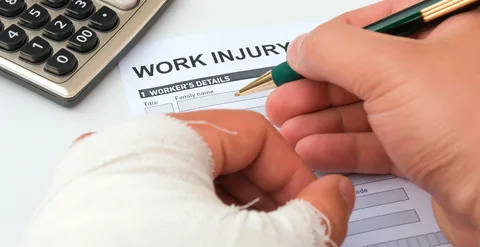Ever wondered what would happen if you slipped on a banana peel at work and ended up in the hospital? Well, that’s where workers’ compensation insurance comes into play! It’s like a safety net for employees who get injured or sick because of their job. Let’s dive into this topic and make it as simple as possible, with a sprinkle of humor to keep things interesting.

Understanding Workers’ Compensation Insurance
Workers’ compensation insurance is an employer-funded program that ensures employees receive medical care and compensation for lost wages when they can’t work due to workplace injuries. Think of it as a superhero cape for workers, swooping in to save the day when things go wrong. The core idea here is simple: help employees recover without the financial burden falling solely on their shoulders.
How Does It Work?
Imagine you’re at work, minding your own business, and suddenly you trip over a rogue stapler. Ouch! You file a claim with your employer, who then forwards it to their insurance company. The insurance company steps in, making sure you get the medical care you need and compensating you for the time you can’t work. It’s like having a backup plan for life’s unexpected twists and turns.
Employer Responsibilities and Employee Rights
Employers have a big role to play in this system. They must keep the workplace safe to prevent injuries and cover the costs associated with workers’ compensation insurance. This doesn’t just protect employees; it also shields businesses from potential lawsuits. On the flip side, employees have rights too. They’re entitled to compensation if they get injured, regardless of whose fault it is. This balance helps maintain a fair workplace where safety is prioritized.

Financial Implications for Employers
Now, let’s talk numbers. Employers pay premiums for workers’ compensation insurance, and these can vary. Premiums are calculated based on the level of risk associated with different types of work. For example, a construction worker might have a higher premium than an office worker. Employers can reduce these costs by implementing strict safety protocols and regular training. This not only lowers the risk of injuries but can also reduce the premiums they need to pay. It’s a win-win!
Common Misunderstandings
There are plenty of myths floating around about workers’ compensation. For instance, some think that if they caused their injury, they aren’t eligible for compensation. That’s not true! Workers’ compensation is a no-fault system, meaning it doesn’t matter who caused the injury. So, even if you tripped over your own shoelaces, you’re still covered.
Conclusion
In a nutshell, workers’ compensation insurance is a crucial safety net for employees and a smart investment for employers. It ensures that workers can recover without financial stress and helps businesses avoid costly lawsuits. So, the next time you see a rogue stapler, remember that workers’ compensation has got your back!
For more detailed information, you can check out AuPeo’s guide on workers’ compensation insurance1.
Stay safe and watch out for those sneaky office supplies! 😄



